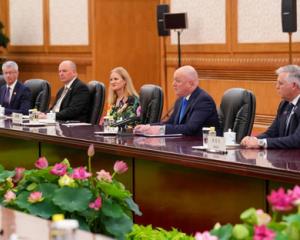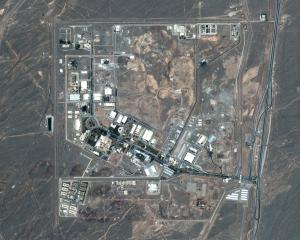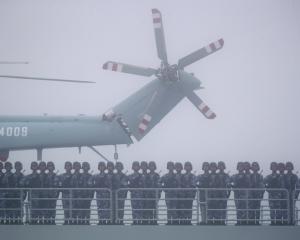The execution of a Shi'a cleric by the Saudi monarchy last weekend and the response to this by the Iranian Shi'a theocratic regime points up the fact that one of the key conflicts in the Middle East is between the Saudi and Iranian rulers.
Although often presented as religious-sectarian in nature, this conflict is much more about political and economic interests appearing in religious guise.
And while Saudi Arabia is presented as the leader of the Sunni Islamic world and Iran as the leader of the Shi'a Islamic world, the forms of Islam which reign supreme in these two countries are relatively recent inventions.
Saudi Arabia uses Wahhabism/Salafism, arising out of but quite distinct from Sunnism, as its source for legislation and political legitimacy.
The Wahhabi doctrine was founded and expanded in mid-18th century Arabia and repudiates all other branches of Islam, including the four Sunni schools, as false versions of Islam while reserving a special hatred for Shi'a Islam.
The Islamic Republic of Iran, which was established as a result of the 1979 revolution, deploys the theory of velayate faqih. This asserts the sole right of governance belongs to a pious jurist such as the former supreme leader of Iran and the founder of the Islamic Republic Ayatollah Khomeini, and the current supreme leader, Ayatollah Khamenei.
This political justification for the current autocracy in Iran has no precedent in the history of Shi'ism. It was first suggested by Khomeini in the 1940s.
Many Shi'a clerics, including the high-profile Iraqi Ayatollah Sistani reject Khomeini's messing with the Shi'a jurisprudence. Notwithstanding, both Saudi Arabia and Iran use their Islamic establishments as sources of legitimacy, and when it comes to regional domination, they are bitter rivals.
The indirect confrontation, or type of Cold War, between Saudi Arabia and Iran is not new. Saudi Arabia was by far the strongest supporter of Saddam Hussein (former president of Iraq) during his invasion and war against Iran from 1980 to 1988.
The significant involvement of Saudi Arabia and its allies in the crisis in Syria, Yemen and to lesser degrees in Iraq and Lebanon as well can only be understood through its struggle against Iran for influence in the region.
Recently, however, Saudi Arabia has witnessed several setbacks. Thanks to Russian indiscriminate bombardment of groups fighting Assad, the Syrian army has been able to take back some areas lost to the rebels, many of whom enjoy Saudi support, while Iran and its allies support Assad.
Probably the Saudis' heaviest loss was the assassination of Zahran Alloush on December 25 by an air strike by either the Russians or the Syrian air force. Alloush was the head of a Salafi militant group called the Army of Islam which is backed by the Saudi regime. The Saudis have also run into problems in their invasion of Yemen.
Despite heavy air strikes since last March and a military campaign on the ground, the Saudi-built coalition seems not to have made much progress in installing a pro-Saudi government.
By contrast, in Iraq, the Shi'a-dominant Iraqi army, which is also backed by Iran, was able to liberate Ramadi, a large and strategic city, from Isis.
The overstretched Saudi involvement in regional conflicts is, moreover, expensive even for a state that holds the largest oil reserves in the world. The deliberately high level of oil production is aimed at keeping Iranian and Russian oil cheaper than usual and thus doing them economic damage.
However, it also impacts on the Saudi economy and has drained their gigantic conflict-making budget. This resulted in increasing prices for public services such as providing water and electricity which are usually very much subsidised by the government.
The whole situation is not being taken well by the average Saudi and public dissatisfaction is something the rulers of Saudi Arabia have to worry about. The standard response of the Saudi rulers is pushing sectarian politics in both internal and foreign affairs.
Most of the 47 prisoners executed for ‘‘terrorism'' were killed for their alleged affiliation to al Qaeda. However, four prisoners were Shi'a Saudis, a minority that has been systematically marginalised and oppressed in Saudi Arabia.
Chief among them was the prominent and popular Saudi Shi'a cleric Nemer al-Nemer, a figure known for his sharp criticisms of the Saudi government.
The official allegation for charging al-Nemer with the crime of terrorism were his ‘‘provocative'' public speeches and possessing and using a gun at the time he was arrested in 2014. People close to al-Nemer reject the latter allegation and claim it was a government fabrication to justify the death penalty.
The sentence against al-Nemer was issued in 2014 and kept on hold. The sentence also attracted various international opposition and outrage, particularly among Shi'a, including official condemnations by the Iranian regime.
The sudden execution and the way he was killed along with 46 other convicts at this particular time seems to be more like a political message for Iran and/or a measure that the Saudi regime has sought to unite the population behind it in the face of its internal and foreign policy setbacks.
The tactic seems to be working for the Saudi rulers, given that thousands of Saudis in various hashtags in social media are ‘‘thanking'' their king for executing the ‘‘terrorists''. But how long this will last and what the wider consequences of these executions will be remain to be seen.
So far, by encouraging the attack on the Saudi embassy in Teheran, the Iranian regime has scored something of an own goal. Despite this, these executions, and especially that of al-Nemer, may yet turn out to present new and bigger problems for the Saudi monarchy.
● Karim Pourhamzavi was an independent blogger in Iran and is a PhD student in the department of politics, at the University of Otago.











